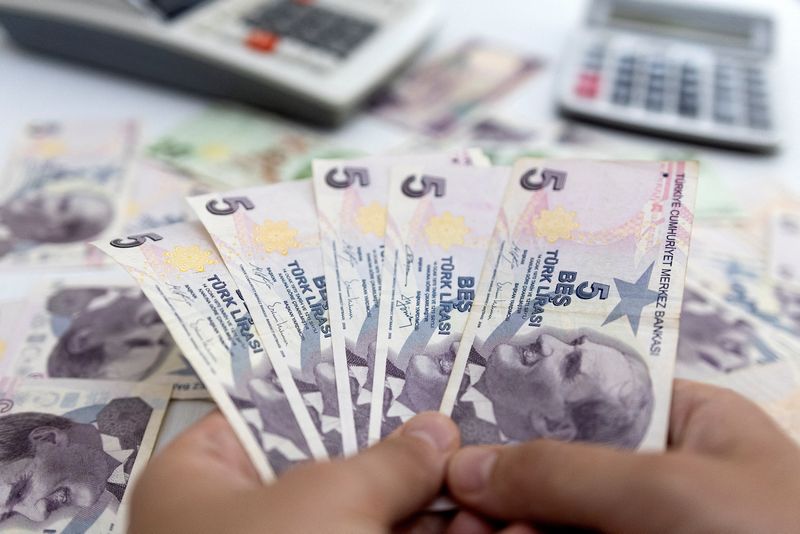ANKARA (Reuters) - Turkey's lira weakened to a fresh record low of 18.9620 against the dollar on Thursday, as investors weigh the economic impact of massive earthquakes that hit the country last month.
Presidential and parliamentary elections scheduled for May 14 are adding to uncertainty. They will determine whether Turkey continues with unorthodox policies under President Tayyip Erdogan or reverts to orthodoxy as promised by the opposition.
Separately, Turkey's Treasury said on Thursday it had borrowed $2.25 billion in a eurobond issue maturing in 2029, bringing the amount it borrowed from international markets to $5 billion this year.
The yield to investor in the latest issue was 9.50%, down from 9.75% in the eurobond issued in January, the Treasury said, adding that demand was more than triple the amount issued.
More than a third of the amount issued was sold to investors in the United Kingdom and more than 20% to those in the United States, it said.
The lira has been largely stable since August thanks to authorities' heavy hand in the forex market, including a decline of about $9.4 billion in reserves since the first quake hit in early February.
Dipping into reserves has been a regular feature of the government's unorthodox economic policy in recent years, especially since a historic currency collapse in late 2021.
The central bank replenishes its reserves in several ways, including requiring exporters to sell a portion of revenues to it. Authorities took several steps to cool demand for FX after the earthquake, widening the spread in FX and gold trades.
Flows of international aid will help ease the pressure, many bankers say, requesting anonymity due to sensitivity around discussing state policy.
In the latest such support, the European Bank for Reconstruction and Development (EBRD) said on Thursday that it will invest up to 1.5 billion euros ($1.6 billion) in the next two years.
The lira lost some 30% of its value against the dollar in 2022 and 44% the year before.
It is likely to hover around 19 to the dollar until the end of the election cycle, largely thanks to forex interventions, but would likely decline further in the long term if Erdogan wins the election, Wells Fargo (NYSE:WFC) said in a note.
Under a scenario where the opposition wins, the lira would rally sharply due to more conventional policy, potentially firming up to 20% by the end of the second quarter, the bank said.
Turkey's international bonds also came under pressure with longer-dated issues falling around half a cent in the dollar, according to Tradeweb. The premium investors demanded to hold the country's hard-currency bonds over safe-haven U.S. Treasuries has risen sharply over the past two sessions, adding 18 basis points to rise to 446 bps since hitting a two-month low on Tuesday.
